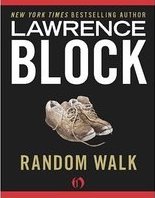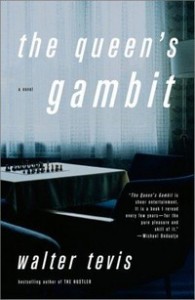 Author Lawrence Block on Random Walk: “Every now and then someone comes up to me at a speech or signing and says one of two things. ‘I’ve liked all your books,’ I’ll be told, ‘but there was one I couldn’t make heads or tails out of.’ Or just the opposite: ‘I’ve read most of your books, but there was one that really knocked me for a loop, and I’ve read it seventeen times now, and it’s completely changed my life.’ “It’s always the same book. Random Walk.”
Author Lawrence Block on Random Walk: “Every now and then someone comes up to me at a speech or signing and says one of two things. ‘I’ve liked all your books,’ I’ll be told, ‘but there was one I couldn’t make heads or tails out of.’ Or just the opposite: ‘I’ve read most of your books, but there was one that really knocked me for a loop, and I’ve read it seventeen times now, and it’s completely changed my life.’ “It’s always the same book. Random Walk.”
I wrote the book in the spring of 1987, and never was a book more eager to be written. Paradoxically, never was a book less eager to be read–the advance sale was light, the reviews were venomous, and most readers never even knew the book existed. Now it’s getting a new lease on life, and I’m delighted. I don’t know that it’s time has come–it’s just as possible it’s time has come and gone. But I do know Random Walk has enormous impact on some of the people who read it, and I hope that now they’ll have a chance to find it.”
A few of my favorite passages:
“You could take a walk, a voice in his head said.”
“We’ll know more when we have to know more. You know what it’s like? It’s like driving at night. You can only see as far as the headlights reach, but you can go all the way across the country that way.”
“The universe was endorsing her action by cooperating at every turn.”
“Don’t work things out, don’t try to think your way through it. Just listen, and you’ll always know where to go.”
“He seemed to have given up deciding things, he realized. It looked as though the only way for him to find out what he was going to do was to wait and see what he did.”
“What part is the river? The water? But it’s only in the river for a while. It flows in from some other stream and flows out into the Gulf of Mexico. There’s always new water coming in and old water flowing out. So what’s the river? The land on either side is the bank of the river, the mud underneath is the bottom of the river, but what’s the river? I think the river’s a certain time and space, and sooner or later every drop of water in the world gets to take its turn being a part of it. And then they go somewhere else. This drop goes to the Gulf, and this drop evaporates, and somebody drinks this drop—. A little of the world’s energy is gathered up into a river and the water makes sure it’s never empty.”
“Nobody gets anything from this walk that he didn’t come here to get. The thing is, the only way you’ll know what you came for is when you see what you get.”
“Once you start on the path, I don’t think you can really stop. You can slow down, you can get sidetracked, you can drag your feet, but I don’t think you can turn your back on it completely.”
“People have so goddam much to walk away from. Every time I find myself wondering what we’re talking toward, I tell myself that’s beside the point.”
“There’s no order of difficulty in miracles. They’re all impossible.”
“We’re all becoming the people we really were all along.”
“It was impossible, it had happened, impossible things did not happen, and therefore… therefore what?”
“You know that line, ‘It’s a lousy job but somebody has to do’? If it’s really a lousy job, then nobody has to do it.”
“A leap of faith (is) never from Point A to Point B. A leap of faith is from Point A.”
“If he couldn’t stretch his mind, he could at least protect himself by closing his eyes.”
“He felt as though he had let go of the steering wheel of life.”
“You did what you would have done, in a minute or in all eternity.”
“The only way to find out what you deserve is to wait and see what you get.”

 This is a thriller about tournament chess. The tournaments aren’t just background for a more exciting plot, the chess games are the action. Piece-by-piece. Don’t play chess? (I don’t) Doesn’t matter, I was on the edge of my seat. (
This is a thriller about tournament chess. The tournaments aren’t just background for a more exciting plot, the chess games are the action. Piece-by-piece. Don’t play chess? (I don’t) Doesn’t matter, I was on the edge of my seat. ( Author Lawrence Block on
Author Lawrence Block on